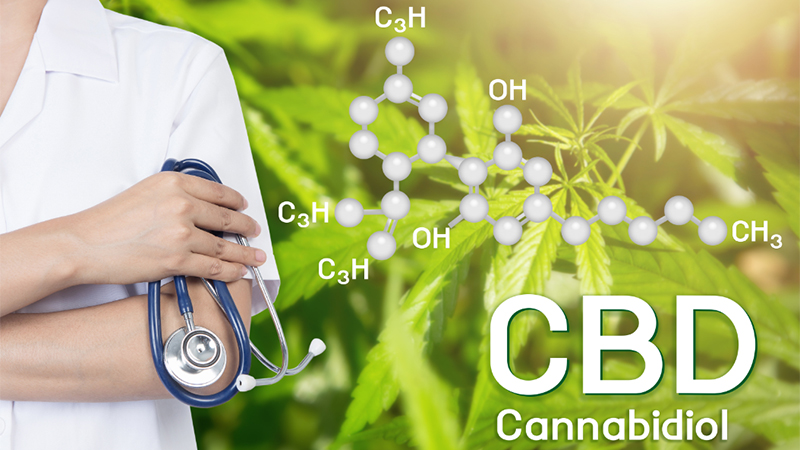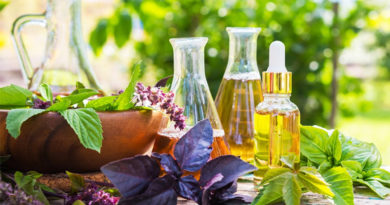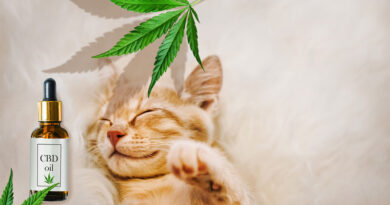7 CBD Myths You Should Know About
CBD is among the most popular health supplement raves in the media today and understandably some misconceptions and myths about the subject have come up over the years. While some are downright ridiculous, few might come as a surprise to a lot of people.

Here are seven (7) CBD Myths you should know.
1. CBD has no scientifically proven health benefits
Critics of CBD mostly push this narrative. They claim that CBD has no scientifically proven health benefits, and therefore its use should be discouraged.
However, on the contrary, there is an abundance of scientific research that supports the use of CBD and recognizes its potential use for a wide range of mental and physical conditions. While it is true that most of this research is still ongoing and the quality of research varies from one source to the other, some of these studies have already come up with considerable results.
Currently, there is strong scientific evidence for the use of CBD in the treatment of epilepsy seizures and anxiety. There have also been some randomized controlled clinical trials on humans- which is a standard scientific proof on all counts. As the interest in CBD increases, more clinical trials can help demystify this claim.
2. CBD can get you high
Some folks think that since CBD is from hemp, then automatically, it should get users high. This is far from the truth. The amount of THC, which is the main psychoactive compound in hemp, is usually very small and almost absent in CBD. In other words, it is too small to give a high.
Because CBD seems to help improve mood and treat depression. It can also technically be termed as psychoactive in the sense that it can alter your brain and change the way you see the world and things by improving your mood. However, this is not bad as this is also why CBD is so good for treating depression and mood swings. However, it doesn’t cause intoxication like THC.
3. CBD is illegal
Ever since the farm bill of 2018 that legalizes hemp farming for CBD, laws against the use of CBD have been revised. Contrary to the popular myth that CBD is illegal, CBD is legal in all states in the United States, and some countries, primarily because CBD is devoid of any intoxicating effects.
The law recognizes CBD isolate- that is, CBD without any form of THC and CBD that is less than 0.3% THC is legal.
However, laws concerning CBD may differ state from state and country. Nonetheless, the manufacture and use of CBD is hardly illegal anywhere in the United States, but it is advisable to seek out the laws in your area before using CBD.
THC, on the other, is still mostly illegal except when prescribed under the instruction of a physician. Notwithstanding the health benefits, THC is mainly seen as a material for substance abuse because of its psychoactive effects on recreational users. Visit to see how to use THC oil.
4. There are no side effects
The media tend to portray CBD as a miracle supplement that cures all- without any side effects. This is also far from the truth. There is hardly any medicine or supplement that can boast that they are entirely free of any side effects and CBD is no exception.
CBD is generally safe to use. However, users may still experience some side effects when using it. And the higher the dose, the more likely you are to feel these side effects. Some of the common side effects are mild such as changes in appetite, diarrhea, dry mouth, tiredness, and drowsiness. A severe side effect includes liver damage.
CBD may also have severe side effects as a result of drug interactions. So, it is advisable to speak to your doctor first before introducing CBD as a health supplement, especially if you are also taking other medications.
5. CBD cures everything
Perhaps, this is one of the most popular myths surrounding CBD. The media has promoted CBD as a panacea and miracle drug that cures all, which is very misleading. While it is true that CBD has a lot of health benefits and can be used in relieving symptoms of a wide range of health conditions, it still does not cure everything.
For instance, CBD can help relieve symptoms of people who have cancer, Parkinson’s disease, and Alzheimer’s disease, but does it mean it cures these conditions? The answer is no.
While research is still ongoing to explore the potentials of CBD and the role it plays in treating these conditions, it is better to stick to the known facts for now, rather than speculating about unverifiable claims.
6. Higher doses of CBD work better
Contrary to this line of reasoning, is the fact that research says that higher doses of CBD may cause severe side effects. Experts advise that such a dosage should be reduced to relieve the side effects.
Like any other medication, taking a higher dose than the required amount will not amount to any significant improvement, but might instead lead to an overdose. Although it is quite impossible to overdose on CBD, the fact remains that taking as much as CBD as possible may not help much.
Since there is no standard dose for taking CBD, it is advisable to start small and add up in little amounts until you see the desired effects.
7. CBD is the same thing as THC, without the high
Although both CBD and THC are indeed gotten from hemp, nonetheless, they affect and interact with the endocannabinoid system differently.
THC activates the receptors of the endocannabinoid system. CBD, on the other hand, does not activate these receptors. Instead, it boosts the production of the natural endocannabinoids in the body and acts as a suppressant to dampen the activities of the cannabinoid’s receptors.
Despite their unique difference, both CBD and THC could benefit the same set of health conditions in their own way. Choosing the most ideal is therefore largely dependent on the individual’s tolerance level of THC and the laws surrounding the use of THC in an area.
Besides, the combination of CBD and THC is sometimes advisable to maximize the best of both sides- a phenomenon that is known as the entourage effect.

Conclusion
As CBD continues to gain relevance, so many unfounded claims continue to plague the subject. This has necessitated the need to demystify the misconceptions surrounding CBD to avoid falling for the misinformation that is flying around everywhere. A key way to understanding CBD facts and dispelling the myths is improving your knowledge of CBD; this way, you can quickly tell reality and facts from unauthorized claims and be able to make optimal use of this extraordinary plant.



